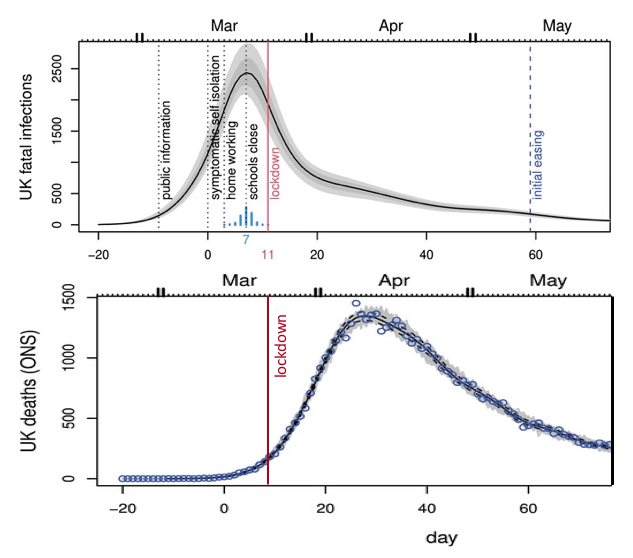Do Covid-19 Lockdowns work?
Back at the beginning of 2020, the only tool in policy-makers box were minor social restrictions leading to a full lockdown. In the UK, Imperial College London’s data modelling was used to guide public policy. It clearly backed lockdowns and indeed said thousands would die if a lockdown was not put in place. Subsequently, the Imperial team have said that they believe 3.1 million deaths were avoided across 11 European countries.
Do these predictions now stack up against the collected evidence?
Do lockdowns work?
Examining the data
A recently published peer reviewed paper in Biometrics casts severe doubt on the Imperial teams claims and in turn, the merits of lockdowns. By looking at the actual deaths and working back, with as few assumptions as possible, to work out when the infection occurred, the paper shows infection rates falling before lockdown started. Measures such as social distancing, hand hygiene and home working were likely having a good impact.
Deaths continued to rise during lockdown, but this was due to infections occurring before lockdown.

Data from Sweden is also presented, which shows a similar curve, although not flattening as quickly. With Sweden not going into a lockdown, this adds further weight to those doubting whether lockdowns work. The Imperial model “copes” with this anomaly by actually claiming that Sweden did go into a national lockdown. In fact Sweden only closed colleges and some higher year secondary schools, it instead mostly relied on personal responsibilty.
Examining Non-Pharmaceutical Interventions
A second peer reviewed paper, this time published in The Journal of Epidemiology reviewed various different models. The main conclusion was:
Inferences on the effects of non-pharmaceutical interventions is non-robust and depend on model specification and selection.
The models generally poorly fitted the data and relied heavily on the model assumptions. Interestingly, the models that did fit the data better, showed little positive impact of lockdown.
Conclusions
We now have a wealth of real world data and don’t need to only use models that have questionable assumptions.
Significant doubt now exists on the models that recommended lockdowns and claimed large numbers of lives were saved by them.
With the availability of vaccines, there is now a viable, more cost effective and socially acceptable alternative to lockdowns and a path out of the pandemic.
Marketwise can help you get your message in front of the right highly qualified scientists and researchers. From biotech researchers, to geneticists, virologists and epidemiologists.


Great article, but your first sentence is untrue. Focused protection, Great Barrington Declaration and Ivermectin.
Thanks for your comment. Yes, perhaps a better way to put it would have been that “the only tool in policy-makers box being considered, were minor social restrictions leading to a full lockdown”